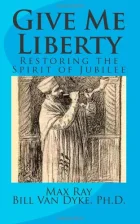
No matter what we may think, we are not the first people on earth to live in troubled times. Troubles have characterized human existence from very near the time of its origin.
Life in God’s newly provided paradise had hardly begun when the first tenants messed things up. Life on earth has not been the same since.
Murder, lust, violence soon characterized human activity rather than a loving relationship with their God. For every step of progress in science, the arts or in the domestic realm, it seems that our earliest ancestors took two steps away from the ideal of manifesting the image of God in the world of that day until the Creator called a halt to it all with the flood.
Very soon after God had washed and purified the earth, man was at it again, only this time the evil began to be manifested on a more grandiose scale. Institutionalized oppression in the form of war and its devastation and spoils, levied tribute (taxation) and slavery built empires, (Babylon, Assyria, Egypt, Greece and Rome in the ancient world) to the glory of the creature rather than the Creator. Since that time the conditions have only gotten grander – and worse – with one oppressive, political or economic system after another arising to enrich the rich and serving, whether intentionally or not, to increase the poverty of the poor.
Even the most noble efforts of man to create an equitable and just society fall victim to the depravity of the selfish and powerful who are able to manipulate the system to their advantage.
Sadly all to often, we human beings, like animals, never look up to see the source of the good things we receive in this world. We, with unwarranted overconfidence in our own abilities, keep trying to mend that which is broken beyond repair. The human systems which we have created will never be rescued. They are flawed from the outset, no matter how honorable the intention of the originators.
Our American system of government is a case in point. No one in this country knows how many laws are on the books. One source states that there are approximately 20,000 laws governing just the ownership and use of guns! And there is a constant clamor for adding more laws for just this one area of concern. Typically, each year sees the addition of several thousand laws, rules and regulations added to the already overwhelming volume of laws on the books.
The addition of law does not correct society. It rather, although surely unintentionally, only creates more lawbreakers and/or criminals! Indeed, it is the presumption of the sinfulness of human beings that is the basis for this incessant flood of legislation.
“Much that we take for granted in a ‘civilized’ society is based upon the assumption of human sin. Nearly all legislation has grown up because human beings cannot be trusted to settle their own disputes with justice and without self-interest. A promise is not enough; we need a contract. Doors are not enough; we have to lock and bolt them. The payment of fares is not enough; tickets have to be issued, inspected and collected. Law and order are not enough; we need the police to enforce them. All this is due to man’s sin. We cannot trust each other. We need protection against one another. It is a terrible indictment of human nature.” (John R. W. Stott, Basic Christianity, p. 62)
Still we cry for more and more legislation. Every distinctive group decides that it is being discriminated against and cries out for new laws to correct the perceived inequity. Who can blame them for wanting new laws? Everyone wants to be treated fairly! but all the law in the world isn’t going to change the reality that man is flawed and needs more than law to deal with those flaws.
I could go on and on about the terrible conditions prevalent in our day, but all this is old news.
I do not believe for a moment that Christians are to merely acquiesce to the state of things as they are. Neither would it be right for us to hide in a hole and wait for the Lord’s eventual return when he will solve all these thorny problems. Neither do I believe we are called upon to create through threat and coercion a social revolution of the sort we are witnessing in our civilization today.
So, what are we to do? What can we do? Just a few suggestions.
- Give up the idea that government and law can fix human nature. Certainly law can impose a limit on human behavior – to an extent. But law isn’t the solution. Never has been. Never will be. If it were, the law God gave long ago would have long since solved the problems we faced in society.
- Quit looking to the next president or the next elected official to solve the problems we face. Whoever he or she may be, he will be human just like all the others we have had. As such, he will likely only add to the problems, especially if he thinks he is the great savior of the world. Hopefully, he will try to minimize the damage he does while trying to serve the best interests of the whole population, but whoever it is, he or she is not the answer.
- Cease trying to force changes in society by political or economic means. Bullying and boycotting doesn’t work. It is un-Christian. It reflects a lack of faith in God. Oh, I realize we are dissatisfied with the status quo, but to force by some human means the changes we desire is to play the world’s game. We have a greater objective than momentary respite from the symptoms of the greater disease of sin in our society. The objective is the doing of God’s will on earth as it is done in heaven. That is a tall order.
- Start being the change we want to see in the world. That is what Jesus intended his followers to do. Show by word and deed what the world would be like if God were placed in charge of it all. He has that right, you know, the right to rule it all. And one day he will. But until he sees fit to fully inaugurate his universal rule over all creation, believers should act as though he is already in complete charge.
- Come together with other believers in common cause. Too long sectarianism, factionalism and denominational exclusivity has destroyed the influence of the church. We have fought among ourselves instead of focusing our attention and our influence against the real enemies of mankind – the forces of evil that seek to destroy the work of God in the world. Ourselves and our petty traditions are not worth the loss we will experience for failing in this greater work of our Creator. We need to act as a united army – the Lord’s army – against these forces of evil.
- Stop thinking of the church as a means of personal, psychological or emotional self-satisfaction. It doesn’t exist for me to “find myself” nor is it a means by which to achieve my personal goals and ambitions. The church is the body of Christ on earth. It is to function as he did when he was here. It is to show the love of God to a lost world. It is to reflect the glory of God into the world as he did. It is to bind up the broken and heal the sick and lame. It is to restore sight to the blind so they can see the reality that transcends this sad, sick world.
Doing nothing won’t change a thing. Unless we who call ourselves God’s people begin to act as God’s people with courage and determination to truly be God’s people and to do the work God has called us to do all that is going to happen is that we will be stuck in the same tired rut, sinking deeper and deeper into the mire of this worlds rottenness.
Even then, with all the human effort we can muster, we cannot solve the problems of the human race or of our nation. Only God by his grace and power can do that. Whether we can see it or whether we believe it, he is working and in his own good time he will make manifest his work.
And it will be glorious!









